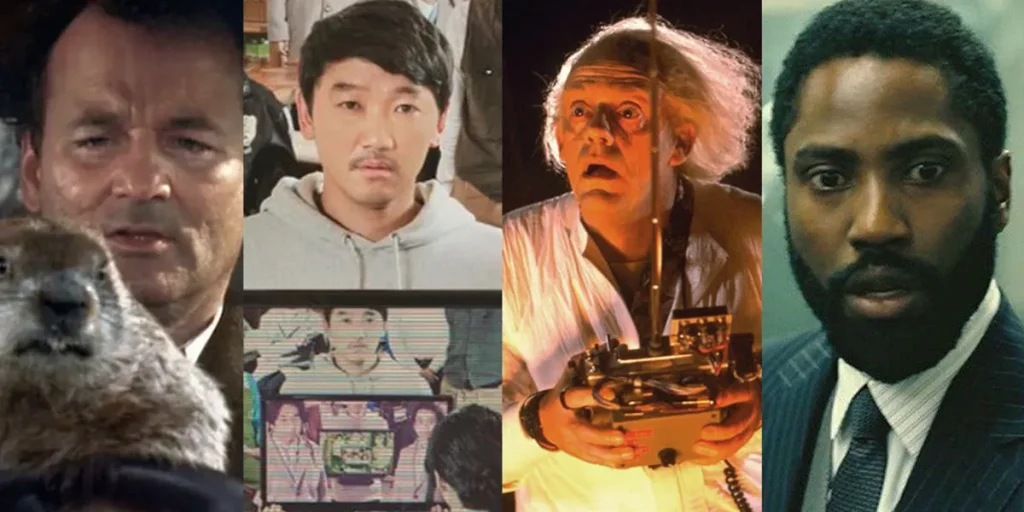Time travel is common in science fiction, and it’s been used to great effect in all types of films. Let’s go through the 15 best time travel movies of all time!
As human beings, we can travel anywhere in the physical, three-dimensional realm we desire given the proper means… but not any when. That’s where the world of fiction comes in. The concept of time travel has been used in movies and other mediums as everything from a fun gimmick to a deep character study to a trippy dissection of the very nature of reality. These stories take a feat that’s overwhelmingly beyond our reach and materialize it into something tangible yet still endlessly mind-bending. So, let’s talk about the 15 best time travel movies of all time!
For a film to qualify, it has to involve someone or something going against the linear, one-way flow of time in some way, meaning I don’t count cases of cryogenic freezing or long hibernation such as Planet of the Apes. Also, as a warning: my #11, #2, and #1 picks are films where the existence of time travel in the first place is a major spoiler. I’ll do my best to not give anything away beyond that, but tread lightly when you approach those entries. With that said, since you can’t travel in time to skip introductions, let’s not wait any longer and get the list going!
15. Timecrimes (2007)
Director: Nacho Vigalondo
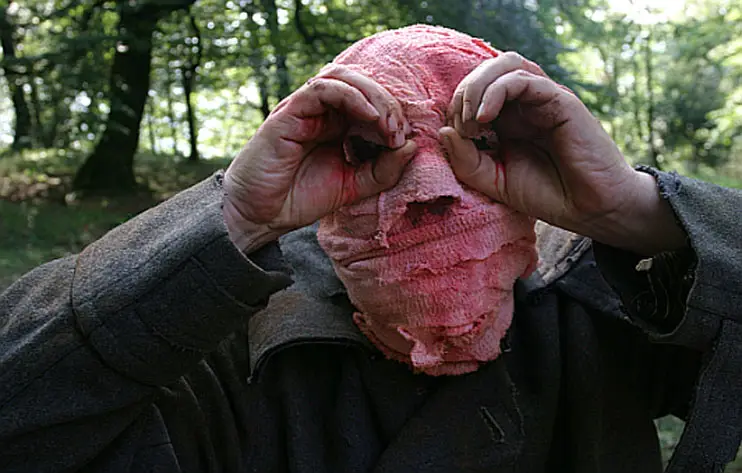
Timecrimes may have some limitations as a small indie film, but it’s still a major standout thanks to the story alone. The movie is about a middle-aged man (Karra Elejalde) who is chased into his neighbor’s time machine and comes out earlier that same day. In his efforts to keep his “past” self on the same track, he winds up causing most of the problems that got him here in the first place, leading to a series of causal loops he has to perpetually clean up. So much so that he forces people to do things for no other reason than he remembers them happening earlier, which causes events that initially seemed strange to be revealed as… well, strange for different reasons. That’s the dark humor of Timecrimes at work. Half of what happens is caused simply by the need for it to happen, even if these events are terrible or embarrassing.
This is our first example of my personal favorite approach to time travel: the idea that you’re never actually changing time. The events in the characters’ pasts have already happened, so they’re just fulfilling predetermined roles. But our main character is still making the choice to fulfill those roles, sometimes out of personal desire and sometimes out of total obligation, all while others are forced to do the same. He’s also comically out of his depth here, practically stumbling along like the pawn he winds up being. It’s up to you whether he’s a pawn of time, fate, or just himself. Accomplishing a lot with very little – there are no special effects anywhere – Timecrimes is a consistently fun display of consequences that can never seem to stop unraveling.
14. The Girl Who Leapt Through Time (2006)
Director: Mamoru Hosoda
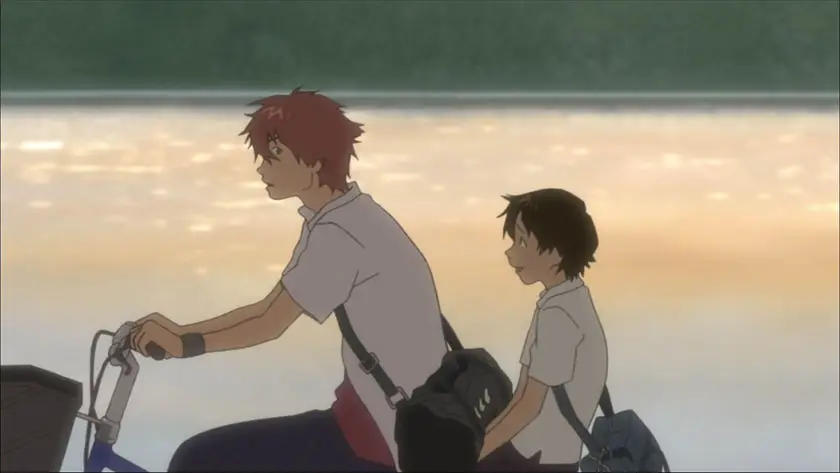
Several time travel stories illustrate time as unchangeably linear, but Mamoru Hosoda’s The Girl Who Leapt Through Time demonstrates why that’s not only good, but beautiful. Makoto Konno (Riisa Naka) is a high school girl who stumbles across the ability to… well, look at the film’s title. She uses this power to improve her life and avoid previous social mistakes, but her actions, combined with her personal shortcomings, set off a chain of events that does more harm than good for her friends. And when she keeps leaping back in time to avoid a love confession from her best friend and crush (Takuya Ishida), it becomes clear that she’s not improving her own life as much as she’s running from her own fears.
The Girl Who Leapt Through Time takes a classic type of no-place-like-home moral and translates it to the way one’s own life has gone. It shows the harm in Makoto trying to shove all consequence and difficulty out of her life instead of confronting the truth and improving her own timeline. But you also totally buy that she would do something like this as a still-growing teenager – and a wily one at that – who isn’t mentally able to handle the power she’s given. The whole thing culminates in a love story that, while a touch melodramatic, works in tandem with Makoto’s coming-of-age. Supported by striking backdrops in Hosoda’s signature style, The Girl Who Leapt Through Time is a leap worth taking.
13. Tenet (2020)
Director: Christopher Nolan
Tenet is undeniably flawed, but it has so many incredible highs thanks to some of the trippiest, most entertainingly executed time travel mechanics ever put on film. This Christopher Nolan movie sees an unnamed Protagonist (John David Washington, The Creator) recruited by a secret organization to save the world with the ability to “invert” objects and people backwards through time. How does this work? Um… I could explain it, but the topsy-turvy, nearly indecipherable details aren’t really the point. Even if you don’t get what’s happening, the way the disorienting reverse physics mesh with conventional action leads to some of the most mesmerizing movement and fighting you’ll ever see. The intensity and weight of every moving piece can’t be overstated here, especially in the finale when things get inverted left and right.
It’s not all bells and whistles, though. Tenet is another time travel film with the philosophy that, as the Protagonist’s partner (Robert Pattinson, The Batman) puts it, what’s happened has happened. It should be a foregone conclusion that the world is already saved. And yet our heroes still need to actually do it through blood, sweat, and sacrifice, completely of their own volition. This puts several relationships to the test, leads to powerful revelations about who these people can be and already have been, and challenges the idea of what free will even means. Tenet isn’t the first nor last film to run with these themes, but it’s easily the most visually impressive and straight-up badass way of bringing them to the screen, even if the path getting there is a bit too convoluted.
12. A Christmas Carol (1984)
Director: Clive Donner
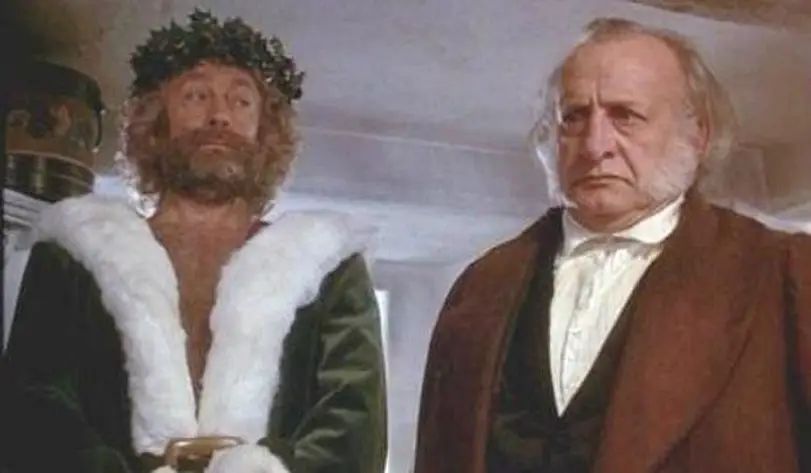
A Christmas Carol needs no introduction. The classic Charles Dickens tale about old grump Ebenezer Scrooge, who learns the value of life as three ghosts take him through Christmas’s past, present, and future, is one of the most cherished stories of all time with too many adaptations to count. Everyone has their favorite, with mine being the 1984 version featuring George C. Scott (Patton) in the lead role. Even before Scrooge goes on his spiritual journey, you see faint traces of the happier man he once was and still could be. Subtleties like that go a long way in making this fairy-tale-like story of redemption and Christmastime charity feel more believable, and Scrooge’s journey through the exact right moments in time remind him that kindness once existed in him, still exists in others, and will always be needed in the future.
This is also one of the best-looking Christmas Carol adaptations out there, so much so that I constantly forget it was originally a special made for television. It’s shot and staged beautifully, the colors are a perfect blend of vibrantly warm and bleakly cold, and I especially love how it plays with shadows and darkness when the Ghost of Christmas Future is around. It may share other versions’ mistakes in copying too much from the book, but it does so the best out of any adaptation I’ve seen. A Christmas Carol is such a great story that most iterations will do the trick – even the one with Kermit the Frog – but this is the first movie adaptation I’d point most people to for a magical holiday watch.
11. Source Code (2011)
Director: Duncan Jones
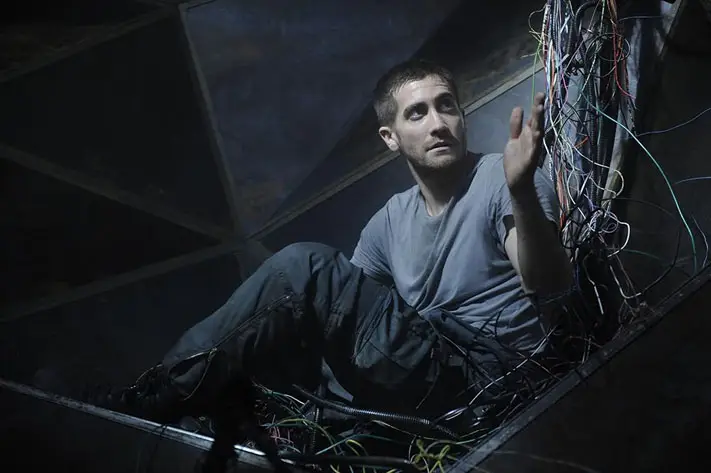
Time loop movies – in which characters relive the same events over and over – have a surprisingly high batting average, with each major one bringing something special to the table. Source Code, the often overlooked second film from Duncan Jones, is about U.S. Army pilot Colter Stevens (Jake Gyllenhaal, Prisoners). After a terrorist train attack, Stevens is put in a repeated, simulated recreation of the event in order to identify the culprit. At least, he’s told it’s just a simulation, until he discovers he’s actually creating alternate timelines with each cycle. One distinguishing factor is that Stevens doesn’t repeat time as himself, but a school teacher who was originally on the train. This is especially crucial because of the real Stevens’ physical state we learn about, which feeds into the film’s main theme: second chances.
Sure, a lot of time travel movies deal with trying to do something over again better than before. But Source Code’s complex mechanics work in a way that you see Stevens realize such second chances are even possible in the first place. Not just in saving innocent lives but also improving his own, even in a program designed to exploit him rather than help him. More broadly speaking, the film is filled with kinetic set pieces, fast-paced tension, great performances (especially from Gyllenhaal), and the spark of originality that proves Duncan Jones hadn’t peaked early with his acclaimed Moon. Hopefully, he’ll regain that mojo soon. Please be good, Rogue Trooper.
10. Beyond the Infinite Two Minutes (2022)
Director: Junta Yamaguchi
If more than ten readers have even heard of this movie, I’ll be shocked. Despite its obscurity and quaintness, Beyond the Infinite Two Minutes is one of the most creative uses of pre-determined time travel out there. Or, in this case, people can see through time. When café owner Kato (Kazunari Tosa) finds that his monitor lets him see two minutes into the future, he and his friends rig it to see further into the past and even into the future. At a brisk runtime of 70 minutes, all filmed in one shot in real time, Beyond the Infinite Two Minutes embraces a less-is-more philosophy by letting characters slowly understand the idea, embrace it, and then push it further, letting the strange fun and humor build while spurring the development of our initially cautious lead.
Kato clearly resents the reality that what he sees on his monitor must happen, in another example of time travel not actually changing the course of time itself. His friends even exploit this to spur him into doing things he otherwise wouldn’t, whether they’re actually beneficial to him or not, only to then find themselves facing that same dilemma. Beyond the Infinite Two Minutes is so cleverly laid out visually to let you grasp its potentially confusing ideas very quickly, as well as keeping the low-key energy up through its real-time camerawork that has you engaged even when you remain in this small café the whole time. It’s quick, funny, fiendishly clever, and worth every minute you’ll spend watching.
9. Edge of Tomorrow (2014)
Director: Doug Liman
Here we have another time loop action movie. In 2020, humanity is at war with an alien race… so it’s a slightly better 2020 than the one we actually faced. Inexperienced Major William Cage (Tom Cruise, Mission: Impossible) is exposed to the aliens’ blood, which lets him relive time whenever he dies. He takes advantage of this to improve his skills alongside Sergeant Rita Vrataski (Emily Blunt, Oppenheimer), who once had this power herself. This may sound a bit too similar to Source Code, but what gives Edge of Tomorrow the… well, edge, is its emphasis on using time loops for strategy, how the power is also wielded by the enemy, and the psychological effect reliving death and violence has on soldiers and their connections with each other.
Cage and Vrataski must both confront the trauma of watching the other die over and over, on top of the typical likelihood of death that comes from fighting normally. They have to reconcile those feelings with colder strategies that force them to think one step ahead, then two steps ahead, etc. as they realize that the alien threat has the same tools they do. Like the best time loop movies, Edge of Tomorrow lets its characters grow not through new events, but by seeing the same events through their own constantly evolving mindsets. As one of the few who actually saw it in theaters, I’m happy to see this initially underperforming film get more love over the years. I’ll also die on the hill that Live. Die. Repeat. is a much worse name.
8. X-Men: Days of Future Past (2014)
Director: Bryan Singer
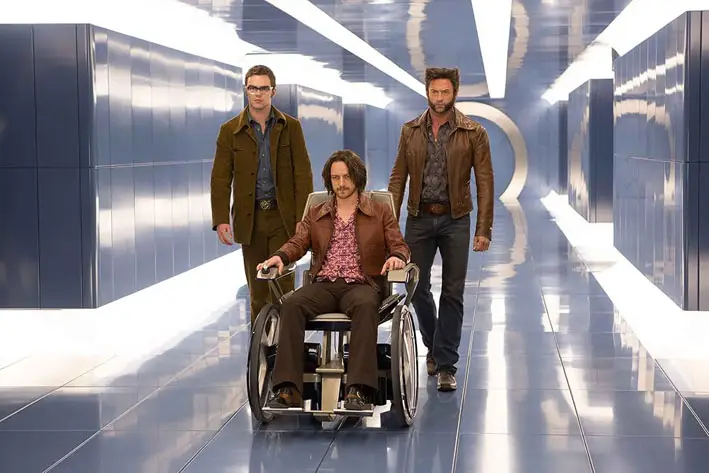
Say what you want about the 20th Century Fox X-Men movies twisting and mangling their timelines more than a crazy straw, but this one knew how to do it in satisfying, emotional, and even meta fashion. In a future ravaged by robotic mutant-hunting Sentinels, the remaining X-Men send the consciousness of Logan/Wolverine (Hugh Jackman) to his 1970s self to stop the events that cause the Sentinels’ creation. This also puts him face-to-face with the past versions of Charles Xavier (James McAvoy, Split), Erik Lehnsherr (Michael Fassbender, The Killer), and Raven (Jennifer Lawrence, The Hunger Games), making this movie a somewhat direct sequel to X-Men: First Class. And given how great that film is as a prequel, it’s a relief that Days of Future Past keeps all its momentum going by exploring the fallout of its bittersweet ending.
The original trilogy of X-Men films created an unstable world where peace is constantly at risk, and it’s almost uncomfortable to see the bridge to that restlessness in full force here. McAvoy’s version of Xavier is the scene stealer thanks to how broken he is, which is particularly jarring when compared to the older Xavier (Patrick Stewart, Green Room) in this very movie. When these two finally interact, with the older Charles pleading with himself to find his way much sooner, it makes for one of the most powerful scenes in any superhero movie. Even on a meta level, the film rewires continuity to send its troubled franchise back on course. Which, uh… well, it was nice while it lasted. With the same grit and realism of First Class, X-Men: Days of Future Past is a tense, thoughtful time travel adventure that’s still fresh and exciting even today.
7. Groundhog Day
Director: Harold Ramis
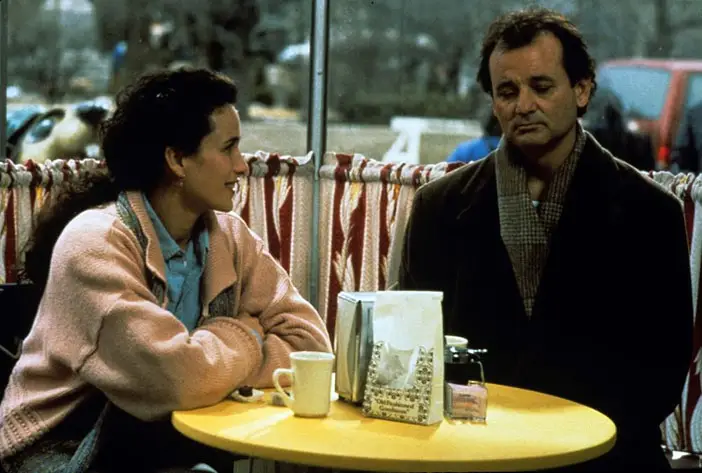
And here we have the granddaddy of all time loop movies, and what still remains the best of them all. Groundhog Day sees Bill Murray (Ghostbusters) play bitter, contemptuous TV weatherman Phil Connors. After covering the annual Punxsutawney Groundhog Day event, he becomes trapped in the same February 2 over and over. Though he initially uses this to do anything he wants with no consequences, Phil begins to change when he starts romantically pursuing his producer Rita Hanson (Andie MacDowell, Ready or Not). Each change in Phil is minor, but it smoothly transitions into the next for a radical transformation. And because he’s going through the same events on repeat, it’s all completely based on how his own perceptions of them evolve, not the events themselves.
The tone expertly flows from an eccentric comedic scene to a heavy, emotional one, and it’s almost eerie how the first repeat in the time loop just kind of happens with no pomp and circumstance. Groundhog Day is also a testament to how much can be accomplished within one day. Not by a single individual, but by how every moment has a plethora of opportunities for the betterment of those involved. If you ever grow tired or aggravated by your supposedly static life, look at every little bright aspect that may be slipping by without you noticing. As great as later time loop films are, there’s a reason this one is still seen as the best other than having come out first. It just does everything you possibly could with the idea, and in a sweetly sentimental but still cynically funny way.
6. 12 Monkeys (1995)
Director: Terry Gilliam
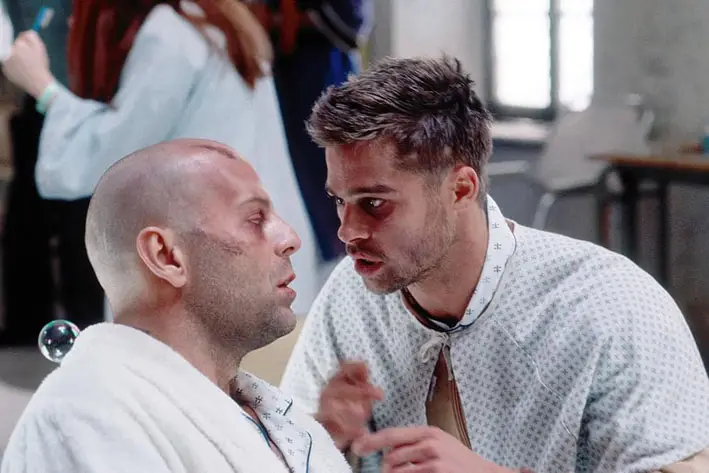
In 2035, a deadly virus has forced people to live underground, but prisoner James Cole (Bruce Willis, Die Hard) is chosen to get sent back in time and find the original virus so a cure can be made. But mistakes send him across several points in time, which in turn slowly messes with his sense of reality as he tries to win over disbelieving allies in his mission. You’d expect people of the past to not believe his claims, but you may not be ready for how much these assertions keep pummeling him down to the point where he himself doesn’t know what’s real anymore, whipping him back and forth between prescience and insanity.
12 Monkeys delves into the psychological damage of time travel more than any other film I can think of, especially when Cole has to do it so often in the movie. The film is edited in such an intentionally confusing, otherworldly way that even you’ll start second-guessing what’s going on. Plus, this is another case where no one can alter history through time travel and is instead part of what’s already happened. The idea is handled in such creepy, dizzying, and ultimately depressing ways that it makes 12 Monkeys one of the first films I think of when determinism in fiction is brought up. It’s a great mix of twisty mechanics and hard-hitting psychology that combine to form everything I love about head-scratching sci-fi.
5. Terminator 1 and 2 (1994-1991)
Director: James Cameron
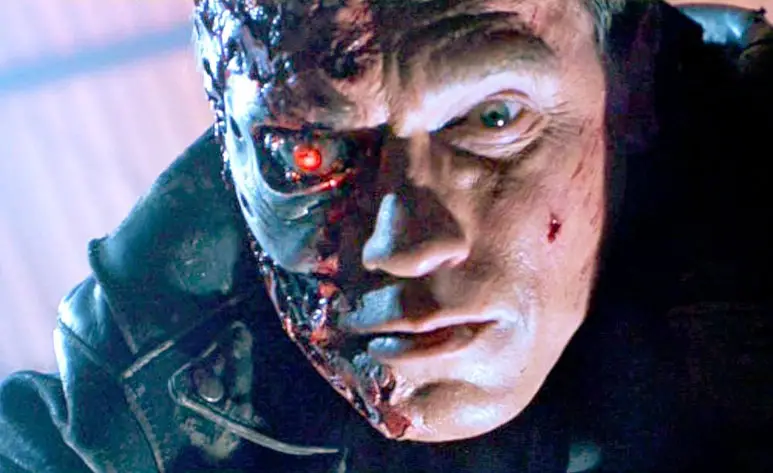
With these two classics being in the same series – and with denial of the other films’ existence being such sweet bliss – we might as well talk about them both together. 1984’s The Terminator started it all with a story about the evil AI Skynet sending a killer T-800 robot (Arnold Schwarzenegger) back in time to kill the mother of humanity’s future leader (Linda Hamilton). In Terminator 2: Judgement Day, a more advanced T-1000 (Robert Patrick) is sent to kill the leader as a child (Edward Furlong), who’s aided by his hardened mother and a reprogrammed T-800.
The first Terminator is more of a pulpy horror film whose time travel gimmick is an excuse to get a killing machine on the hunt, but the menace of a terrible future still looms over our characters and informs their decisions. There’s even a causal loop event that establishes a key part of the future in surprisingly romantic fashion.
Terminator 2 is where everything explodes, including Sarah’s feverish worries for what’s to come or if it can even be changed. If it is possible for Skynet to change the future for the worse, is it possible to change it for the better? Though Terminator 2’s ending certainly leans towards being hopeful, it’s never confirmed whether or not our heroes’ actions have actually prevented the apocalypse, which I like. You ultimately decide how it plays out based on what you believe in since they never made more Terminator movies (again, denial’s a wonderful thing). Though the sequel overshadows the original, both movies are great feats of action and grizzly sci-fi that can never be recaptured, running laps around most blockbusters before and after them.
4. Looper (2012)
Director: Rian Johnson
Righting wrongs has been a recurring theme throughout this list. But rarely has it been personalized and internalized with so much simultaneous aggression and compassion as in Rian Johnson’s magnum opus. In a future where illegal time travel exists, Joe (Joseph Gordon-Levitt, The Dark Knight Rises) is a “looper” assigned to kill assassination targets sent to him from the future. When he’s sent his future self (Bruce Willis, in his second appearance on this list), the two Joes duke it out as Old Joe seeks to violently change the course of his life. We’ve seen an older and younger version of the same person interact in movies, but I love the resentful way these two view each other, for opposite yet identical reasons, and how Young Joe’s reactive actions and thoughts change Old Joe’s very makeup right before his eyes.
Time itself is shown as highly flexible, funneling itself down the most likely path but scarily open to drastic, instant changes. You can also compare the roots of bleak callousness in Young Joe to the fully-formed deterioration of his older counterpart, largely thanks to great performances on both actors’ parts. That’s what Looper ultimately boils down to: Joe correcting the dark, personal path he goes down. As Rian Johnson loves to do, he subverts expectations with a second half that’s much more drama than action, but it all ties back into the decisions both Joes make and how to close loops of tragedy and loss. You come for the badass fights, twisty premise, and almost tongue-in-cheek performances, but you stay for the introspective core that was always hiding in plain sight.
3. Back to the Future (1985)
Director: Robert Zemeckis
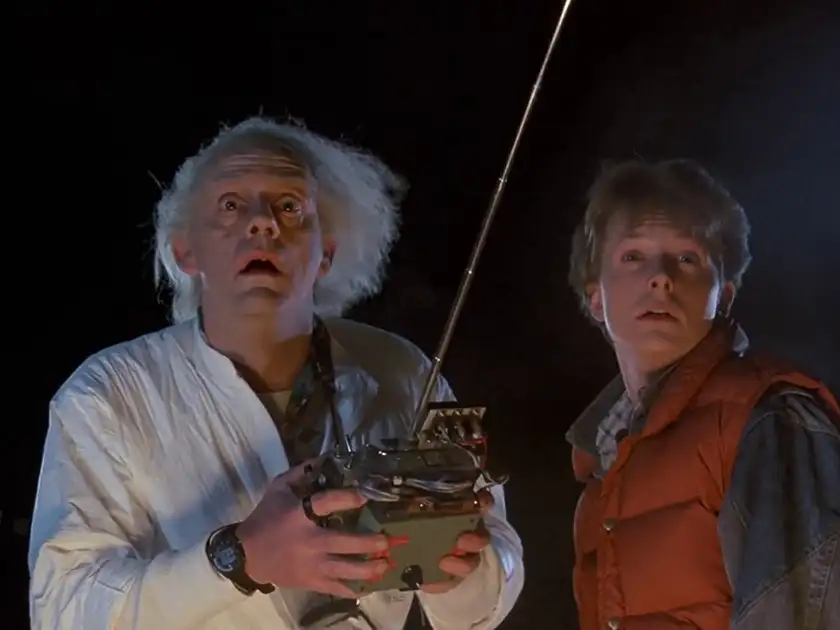
If any other film this goofy and lighthearted ranked this high, I’d get some weird looks. But it’s freaking Back to the Future, arguably the most universally loved time travel movie ever made. In 1985, teenager Marty McFly (Michael J. Fox, Still) is accidentally sent to 1955 by his scientist friend Dr. Emmett Brown (Christopher Lloyd, Who Framed Roger Rabbit). When his parents’ history is tampered with, Marty must make sure they get together while finding a way back to his time. Back to the Future has endured for so long because it’s one of the most flat-out charismatic movies of all time, filled with characters and settings that are silly but so earnest that you almost have no choice but to love them. Doc Brown is eccentric, but he pulls back enough to let you see his heart, humanity, and even depth.
The time travel mechanics are about as standard as you’ve seen: something changes in the past and therefore changes in the future. But Back to the Future makes full use of them with Marty’s mother and father (Lea Thompson and Crispin Glover). We’re taken through the early stages of their relationship and how, with the right prodding from their more hopeful son and a change in attitude, decades’ worth of their lives can be made much brighter. It’s extremely cheesy, but the 80s- and 50s-drenched production and acting entice you so much that you can’t help but accept it all. Back to the Future sets up characters you love, lets them work off each other in exactly the ways you want, and brings everything home in a film that radiates pure, unbridled warmth.
2. Arrival (2016)
Director: Denis Villeneuve
No one physically travels through time in this movie. But like in Beyond the Infinite Two Minutes, someone’s perception does, which is enough for me. When extraterrestrials arrive on Earth, linguist Louise Banks (Amy Adams, Man of Steel) is recruited to help translate their vastly different language and ease global tensions. Arrival is initially as straightforward as it looks: aliens show up, people slowly learn how to communicate, and the world remains uncertain as to whether the aliens can be trusted. But it gets tantalizingly thick in the weeds of how the very foundation of language works, including how actions can change the intended meaning of certain words and how different nationalities can come to different conclusions.
And then, Arrival goes even deeper. Language is an extension of our own perceptions. So, when Louise is able to cross barriers to learn the language of vastly different creatures with vastly different powers, that extension works in reverse to change how she perceives the world around her, including time. Time, a dimension once completely out of reach, can now be scoured through in full, bringing an entire lifetime’s worth of success, happiness, and grief flooding through at once. It’s a beautiful yet spooky concept, one that Louise accepts for the possibilities it provides. Through this quasi-time travel, Arrival is a haunting exaggeration of what people are capable of by extending past what they know and who they speak with. And it’s very similar to my choice for the best time travel film of all time…
1. Interstellar (2014)
Director: Christopher Nolan
Interstellar is one of those films that defy description. Especially regarding the gargantuan third-act swing it takes with time travel that, in typical Christopher Nolan fashion, pushes the technical and emotional mechanics as heavily to the forefront as possible. The film takes place in a future plagued with drought and dust. Former astronaut Joseph Cooper (Matthew McConaughey, Dazed and Confused) is called to travel across galaxies to find a suitable new home for humanity, hoping to save the daughter (Jessica Chastain, Zero Dark Thirty) and son (Casey Affleck, Manchester by the Sea) he left behind.
Time as a dimension is discussed throughout the movie, and it slows for our astronauts while their loved ones on Earth age normally. Dr. Amelia Brand (Anne Hathaway, The Devil Wears Prada) laments that it can bend and twist but not move backwards, as that’s just beyond the realm of human potential. Interstellar captures what time can and can’t do so terrifyingly well that it’s enough to make your stomach churn, along with how its staggering cinematography, effects, and gut-wrenching performances push you to the edge of despair in the unforgiving vastness of space… Until the film reveals that, no, we’re not bound by time as we thought.
Time travel arrives in full during the third act, and it’s used in a way that merges startling scientific accuracy with complete sentimental fantasy. We’ve seen movies on this list show characters interacting across space-time and even participating in events that already happened or will happen from “their” present. It’s the emotional motivation behind those mechanics and how they’re woven so inescapably into the core of the resolution that rocket Interstellar to the top as the best time travel movie of all time. It grounds itself in realism before going above and beyond to show what’s theoretically possible… maybe, one day, more than just theoretically.
If your favorite time travel movie didn’t make the cut, don’t worry! I love this subgenre so much that I’ll leave you with some honorable mentions. Here are 10 more films that either couldn’t quite crack the list or are beloved by many even if I myself don’t love them:
- About Time
- Bill & Ted’s Excellent Adventure
- Donnie Darko
- The Fountain
- Midnight in Paris
- Palm Springs
- Predestination
- Primer
- Safety Not Guaranteed
- The Time Machine (1960)

